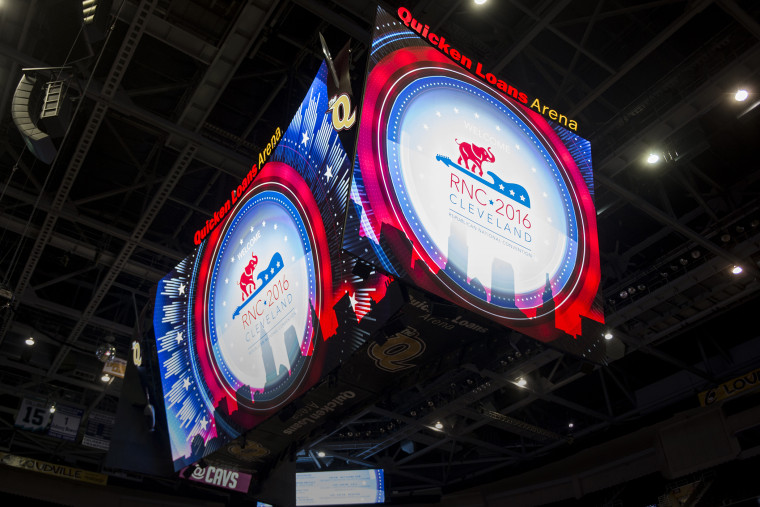When Republican officials and insiders talk about their fears for the party's national convention in Cleveland, they're generally talking about the concerns surrounding the process itself. Will the voting go smoothly? How many ballots will it take?
But there's also a very different kind of fear unfolding. As Politico noted, some Republicans are worried about their personal safety.
In their Wednesday [Republican National Committee] meeting, the party chairs discussed developing security measures for delegates at the national convention. Louisiana chairman Roger Villere said he felt reassured by RNC chairman Reince Priebus and other party leaders that the security situation -- helmed by the Secret Service -- would be more than adequate to keep delegates safe. "A lot of us bring our wives and children. Do we really want to? That's one of the things that was asked," Villere said. "They assured us that we would be protected."
And while I don't doubt that's true, what's striking is that these concerns exist at all. Ordinarily, both parties' national conventions are carefully scripted events -- sometimes derided as political "infomercials" -- in which the parties, their tickets, their candidates, and their base try to put forward their best possible message to a national audience.
In 2016, largely because of the unpredictability surrounding Donald Trump, his supporters, and the possibility of on-the-convention-floor violence, Republicans are forced to consider circumstances that would otherwise be unthinkable.
Indeed, this has been bubbling for a while. A month ago today we learned that Sen. Dean Heller (R-Nev.) said he's considering skipping his party's national convention, explaining, "Things could get pretty testy.... Frankly my biggest concern is security, whether or not I feel it is safe enough to attend a convention."
The Nevada senator's comments came just a few days after Trump was asked what might happen if his party denies him the nomination. "I think you'd have riots," he replied. "I think you'd have riots. I'm representing a tremendous many, many millions of people."
There are, to be sure, a growing number of Republican officeholders -- most notably, John McCain -- who are steering clear of the Republican convention because they're worried about losing. This growing group of GOP politicians sees value to keeping some distance between their candidacies, their unpopular party, and their controversial nominee (no matter who he is).
But then there's this other constituency: party activists and delegates who are actively, consciously worried about possible unrest at the convention itself, all of which would be tied to Trump and his followers.
The Politico report added, "Another chairman, speaking on condition of anonymity, said there were concerns raised about delegates being 'pursued in extreme ways' traveling to and from the convention arena."
A TPM report added that a GOP district chair in Indiana said he too was "rethinking whether he should bring his wife to the July convention, after receiving 'ominous' messages that referenced his family and other personal details."
It's amazing that in 2016, Republican politics has come to this.
